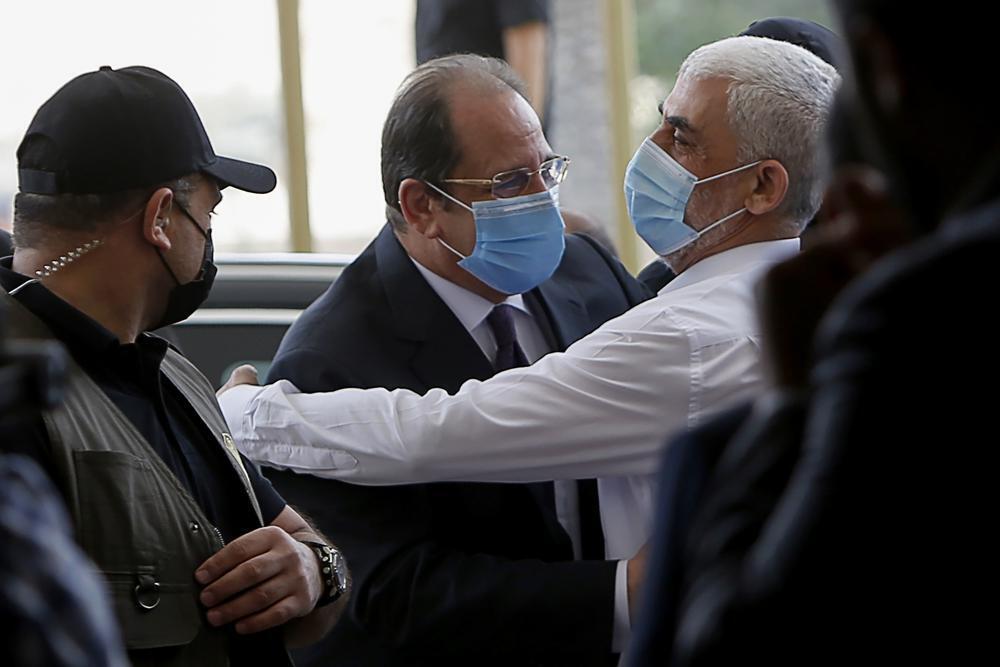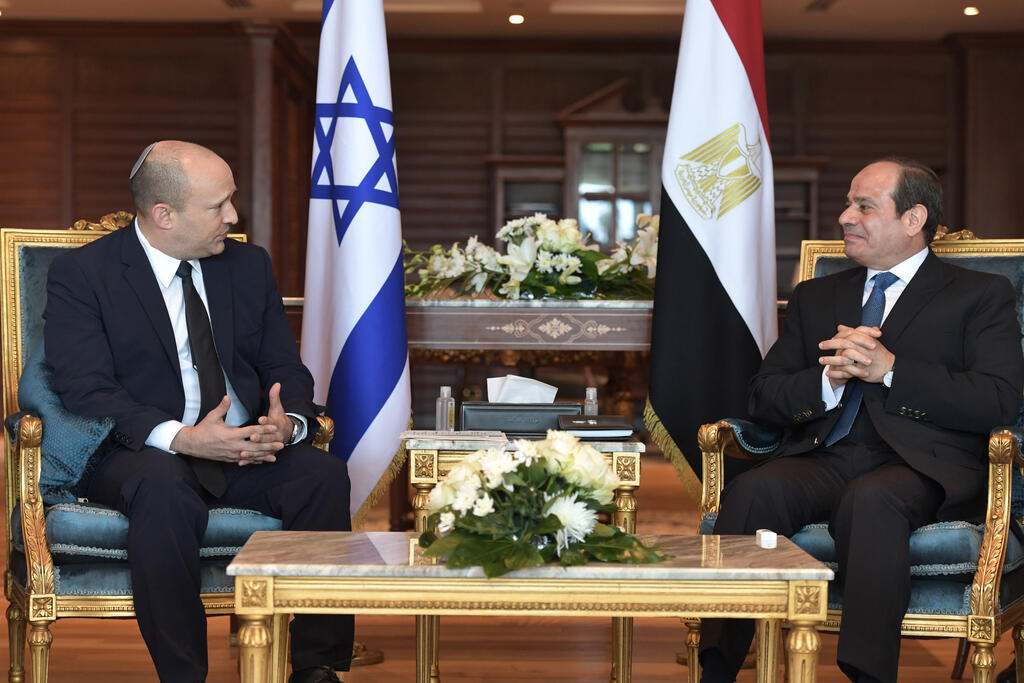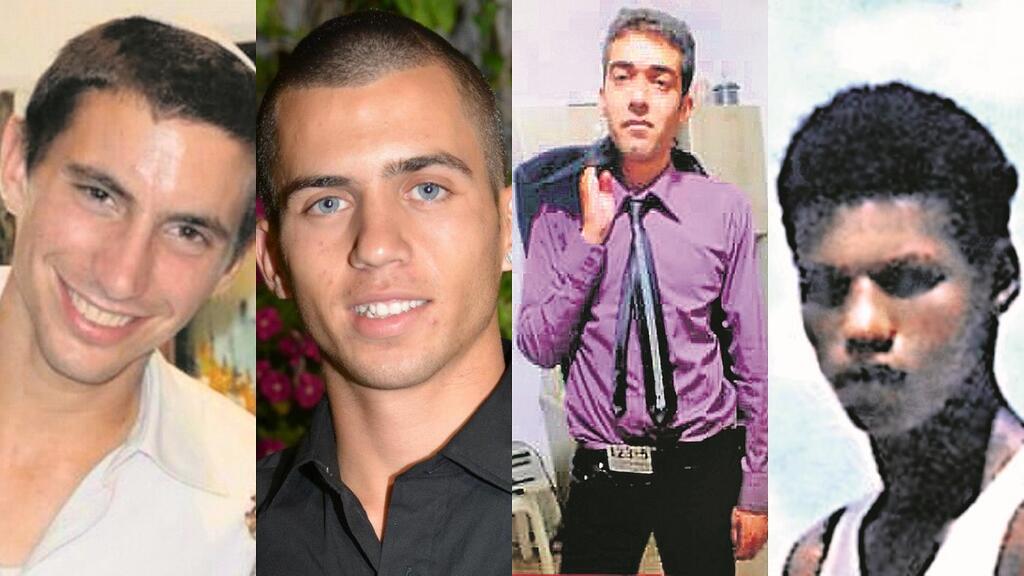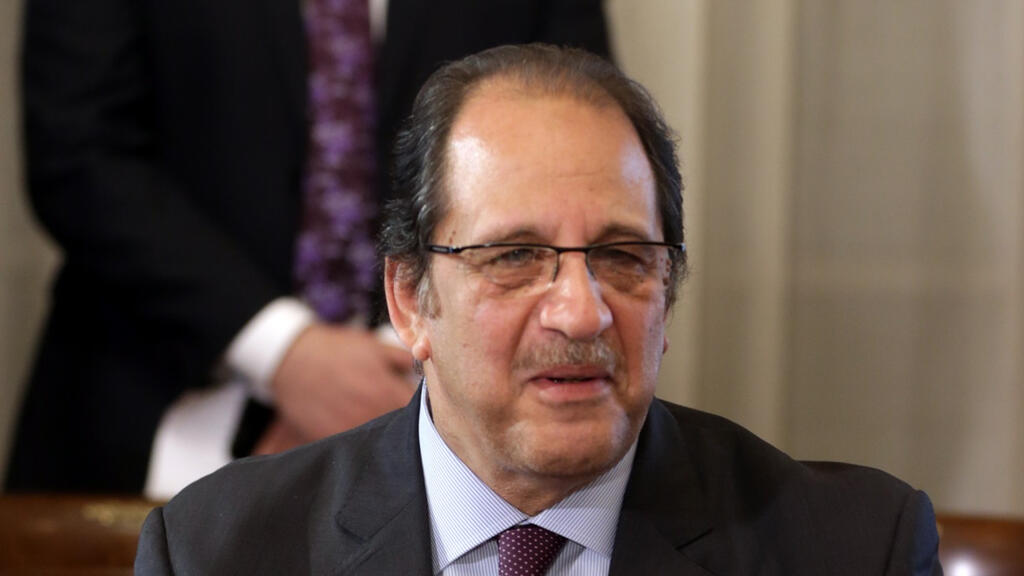During the UN's climate summit in Glasgow this week, not far from all the noise and the media, stood a group of Egyptian men in their 30s and 40s, all of them huddled around a much older person.
That man was General Abbas Kamel, head of Egyptian Intelligence and probably the second most powerful person in Egypt after President Abdel Fattah Al-Sisi.
Local papers dub him "the president's shadow" and "the man of secrets".
Kamel is the man Sisi sent to meet with Prime Minister Naftali Bennett, the one who maintains the direct line of communication between Cairo and Hamas' leader in Gaza Yahya Sinwar, and who also has hosted some of the terror group's leading officials - among them founding member of its military wing Saleh al-Arouri and its political chief Khaled Mashal - in the Egyptian capital.
A colleague of mine and I, stood not far off from him and waited for the general to end his conversation with the Egyptian media, who bombarded him with vigorous questioning.
After Kamel was done, he went out for a cigarette break and we followed him and introduced ourselves. The Egyptian official was relaxed and the conversation flowed smoothly.
He was very diplomatic when talking about certain people, never saying anything bad about them outright.
4 View gallery


Yehiyeh Sinwar, right, the top Hamas leader in Gaza, hugs head of the Egyptian General Intelligence Abbas Kamel as they meet in Gaza
(Photo: AP)
When my colleague asked him about the difference between Bennett and Opposition Leader Benjamin Netanyahu, Kamel held his hands and then parted them to the side.
Relations between Sisi and the former prime minister were very positive, with his gesture mainly describing both Israeli leaders' form and style.
He even chuckled a bit when asked about Sinwar, the same Sinwar the IDF's Intelligence Directorate is certain is exhibiting very disturbing signs of megalomania.
But for the most part, Kamel spoke very openly. The sheer fact he was willing to talk with us was special. There used to be days when trying to speak with an Egyptian official would have resulted in having him turn his back to you in disgust. Now it is no longer the case.
Kamel said that relations between Egypt and Israel are "perfect" and that the meeting between Bennett and Sisi earlier this year in Sharm el-Sheikh was very positive, with both leaders finding a common language.
4 View gallery


Prime Minister Naftali Bennett meeting with Egyptian President Abdel Fattah Al-Sisi in Sharm el-Sheikh earlier this year
(Photo: GPO)
He said he is planning to arrive in Israel later this month to present the Egyptian rehabilitation plan for the Gaza Strip, the prisoner exchange proposals and even a long-term ceasefire between the Jewish state and Hamas.
According to him, all of these initiatives should be done simultaneously for them to be effective. "There is no point to do this step by step," Kamel said. "We need one big move: free minors, women and elderly held in Israeli prisons and in return get a long-term ceasefire."
In recent months, the Egyptians have been lifting some sanctions off of Hamas, mostly concerning the import and export of goods through the Rafah border crossing. It is their attempt to stabilize the situation in the Gaza Strip economically and to dissuade any flaring up of tensions with Israel.
Kamel said that Egypt is working on reaching an arrangement between Israel and Hamas "day and night", maintaining daily communications with Israeli officials and the Palestinians, refraining from naming the terror group outright.
In addition, the Egyptian general stressed that Israel must return to the negotiating table with the Palestinian Authority.
"Start with the low-ranking officers and move up," he said. "We need more lifting of restrictions on border crossings, more entry permits for merchants and laborers and further expansion of Gaza's fishing zone."
It seems that given Bennett's objection to any deal that would release Palestinian prisoners in exchange for Israelis held captive by Hamas, the Egyptians understand the best they can get now is a measured ceasefire agreement.
4 View gallery


Hadar Goldin and Oron Shaul, whose bodies are being held by Hamas and Avera Mengistu and Hisham al-Sayed, are believed to be held in the Gaza Strip
(Photo: Courtesy)
Kamel described the Egyptian attempt to persuade the Palestinian Authority to reestablish its political presence in the Gaza Strip, to regain the legitimacy and power it had lost to Hamas following the 2007 coup.
"You start small, then expand to greater things," he said, adding that Hamas would not allow this to happen.
He also said that Egypt is constantly trying to advance a Palestinian unity government.
We then asked him about the Bennett-Lapid government in Israel. "This is a government that you can work with," he replied, "It has all kinds of sides that are pulling in completely different directions, but we would be happy if it survives."
We said goodbye after a few cigarettes, and after his men whispered a few words in his ear.
The Egyptian general put his hand on his chest and said he was sorry but that he had another meeting.
It was a completely normal conversation between Israeli journalists and a senior official in a neighboring country; exceptional evidence of the current state of relations between Cairo and Jerusalem.


